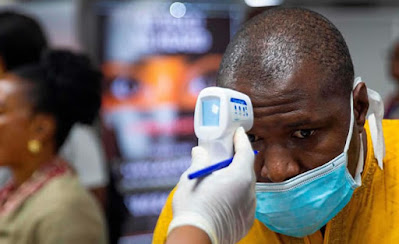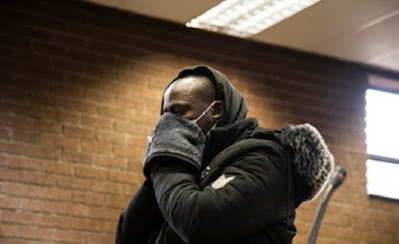Covid-19 third wave scare hits South Africa as citizens test positive after returning from India
THE fear of a possible third wave of the coronavirus pandemic remains high, despite an assurance by Health Minister Zweli Mkhize that the government has fortified its surveillance on possible new variants.
The mounting concern over a possible rise in Covid-19 cases has been driven by reports of individuals who had travelled to India testing positive on arrival in South Africa.
In just the past week, cases have been reported of people who travelled from India testing positive.
A shipping vessel that docked in KwaZulu-Natal after travelling from India has also added to concerns, as some passengers have tested positive and are in isolation. India is experiencing an increase in Covid-19 cases, suspected to be driven by a variant first identified in that country.
Mkhize said the government remained concerned about coronavirus cases being detected at border posts. However, the government had yet to decide on closing the borders.
“This increase in detection of cases at the ports of entry is of deep concern to us as a government, and we have been attending to this as a matter of urgency. We have consulted the Ministerial Advisory Committee as well as the genomics team to guide us on the management of travellers at ports of entry during these challenging times.
“The government will be determining the next steps to follow and announcements will be made on the state of variants of concern in our context, and what measures will be implemented to mitigate against the importation of Covid-19 in general,” he said.
The minister also explained that the B.1.617 variant, identified in India, had not been detected in South Africa and that a patient who had tested positive for the coronavirus, after travelling from India, had the B.1.351 (or 501Y. V2) variant – which remains the most dominant strain in the country.
The B.1.351 drove South Africa’s second wave of the pandemic late last year. The South African Covid-19 consortium, in its latest modelling, warned that for a third wave to be as harsh as the second wave it would probably be driven by a new variant, or several other factors.
“Across scenarios, in the absence of a new variant, we expect the peak of the third wave to be lower than the second wave. However, we see that a slow, weak behavioural response increases admissions for severe/critical Covid-19 cases across most age groups. Younger age groups are expected to have fewer admissions than in the second wave,” the consortium said.
For provincial breakdowns, the consortium expected the wave pattern to differ, but Gauteng was expected to see the highest projected impact during any third wave.
The consortium said that this was “due to the higher concentration of working-age adults and people with comorbidities in the province, and the lower estimates of seroprevalence. Across provinces, the time from an initial increase in transmission to the peak is on average 2-3 months.”
The consortium further highlighted that delaying a possible third wave was crucial as this would give time for the government to vaccinate citizens.
The country’s vaccination programme is expected to begin in earnest later this month.
Health expert Dr Aslam Dasoo said getting the vaccination programme going, while cases remained low, should be the government’s number one priority.
– Cape Argus




Comments
Post a Comment